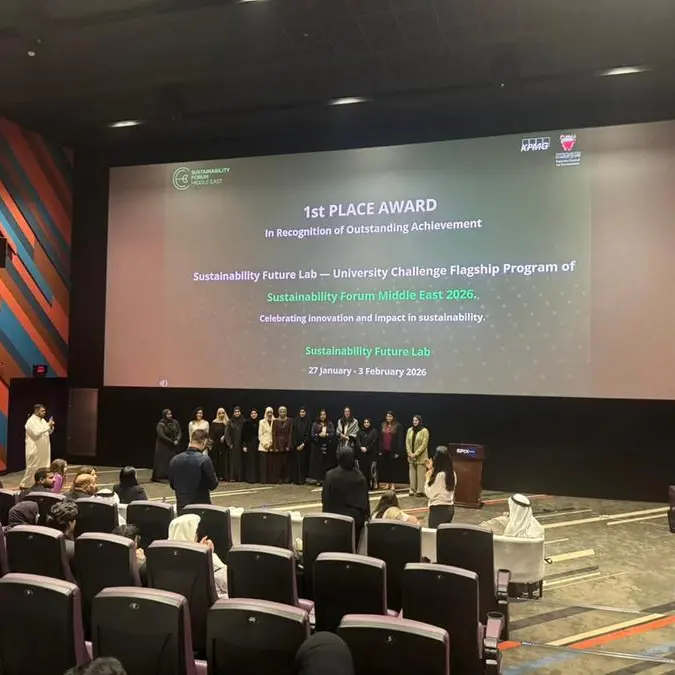PHOTO
- Collaboration to develop and test the use of Transition Credits to further accelerate the transition of SLTEC coal plant to clean technology as early as 2030
- Transition credits are high-integrity carbon credits generated from the emissions reduced through retiring coal fired power plant early and replacing this with clean energy sources
- The Coal to Clean Credit Initiative (CCCI), a consortium of global experts, is already actively engaging with sovereign buyers of transition credits under the Paris Agreement, with support from the COP28 Presidency
COP28, DUBAI - ACEN, the listed energy platform of the Ayala group announced its partnership with The Rockefeller Foundation’s Coal to Clean Credit Initiative (CCCI) and the Monetary Authority of Singapore (MAS) to explore major step towards accelerating the phase out of coal plants in line with the Paris Agreement.
In 2022, ACEN successfully implemented the world’s first market-based Energy Transition Mechanism which involved the divestment and early retirement of the 246MW SLTEC coal plant in the Philippines, and its transition to cleaner technology by 2040 when the coal plant completes 25 years of operations. This groundbreaking initiative could reduce 15-25 years’ worth of emissions (or up to 50 million mtCO2 cumulative emission reduced) given that coal plants typically operate for 40-50 years.
The pioneering initiative between ACEN, CCCI and MAS seeks to develop the world’s first Transition Credit (coal-to-clean pilot project) that would leverage carbon finance to phase out a coal-fired power plant and replace it with renewable energy. This first-of-its-kind project would mark a major step towards phasing out coal in line with the Paris Agreement.
Transition credits will enable ACEN to increase its ambition of further accelerating the transition of SLTEC coal plant to clean technology as early as 2030.
“Today’s development marks a critical contribution to accelerating a global energy transition. Without a rapid and proactively managed transition away from coal-fired power, the world will not meet its climate goals; the urgency of solving this problem cannot be understated. ACEN is proud to be working with The Rockefeller Foundation’s Coal to Clean Credit Initiative and the Monetary Authority of Singapore to develop this world-first project,” said Eric Francia, President & CEO of ACEN Corporation.
“If the world does not break its overreliance on coal, current and planned coal-fired power plants will release 273 billion tons of carbon dioxide over their operational lifetimes and trigger a catastrophe for our planet and the people living on it,” said Dr. Rajiv J. Shah, President of the Rockefeller Foundation. “To retire coal plants and avoid those emissions, we need to create the right incentives for asset owners and communities and mobilize additional finance. This innovative CCCI agreement will pilot a coal-to-clean credit methodology in the Philippines, one critical step toward breaking that overreliance and building a better future.”
Complementing this initiative is MAS’ Transition Credits Coalition (TRACTION) that will test the use of transition credits in early retirement of coal-fired power plants transactions. Supported by close to 30 members and knowledge partners across key stakeholder groups, TRACTION will study the challenges and propose solutions to scale the early retirement of coal-fired power plants in Asia.
“The economics of phasing out coal fired power plants are challenging. There is a need for effective market-based financing solutions, including the use of transition credits to improve the economic case of retiring these plants early and we are pleased to collaborate with ACEN Corporation and Climate Smart Ventures to pilot the use of CCCI’s methodology. Through the pilot transactions that MAS has convened, we hope to road-test and learn from different approaches that can catalyse the use of high-integrity transition credits to support the early retirement of coal plants on a significantly larger scale.” said Gillian Tan, Assistant Managing Director and Chief Sustainability Officer, Monetary Authority of Singapore.
The pilot project will build on the concepts laid out in the working paper jointly published by MAS and McKinsey & Company in September 2023. Climate Smart Ventures, an advisory firm focused on energy transition, will be coordinating the pioneering initiative.
Coal fired power plants account for ~29% of energy related global carbon emissions (International Energy Agency, IEA 2021). Per IEA, to achieve a net zero scenario by 2050, power generation from CFPPs should be reduced by around 55% by 2030, from 2022 level.
Southeast Asia, which has the fourth largest installed coal plant capacity globally, has among the world’s youngest coal fleet with an average age of under 15 years. With strong electricity demand growth in key markets like Indonesia, Vietnam and the Philippines, reducing coal generation within the next two decades will be a major challenge.
As a leader in energy transition, ACEN is looking to further accelerate the retirement of coal fired power plant, and replace the foregone generation with clean, reliable, and affordable energy. The replacement energy is likely to come in the form of integrated renewables and energy storage system (IRESS) such as a combination of wind and solar power plant integrated with battery storage. Transition credits will be an important mechanism to help ensure a just transition, ensuring affordability of the replacement energy as well as the just transition of the local community and the affected workers.
This pioneering energy transition initiative is in line with ACEN’s aspiration to reach 20GW of renewables by 2030, 100% renewable generation by 2025, and net zero GHG emissions by 2050 or earlier.
About ACEN
ACEN (PSE:ACEN) is the listed energy platform of the Ayala Group. The company has ~4,500 MW of attributable capacity from owned facilities in the Philippines, Australia, Vietnam, Indonesia and India, with a renewable share of 98%, which is among the highest in the region.
ACEN’s aspiration is to be the largest listed renewables platform in Southeast Asia, with a goal of reaching 20 GW of renewables capacity by 2030. ACEN is committed to transition the company’s generation portfolio to 100% renewable energy by 2025 and to become a Net Zero greenhouse gas emissions company by 2050.
https://www.acenrenewables.com
About The Rockefeller Foundation
The Rockefeller Foundation is a pioneering philanthropy built on collaborative partnerships at the frontiers of science, technology, and innovation that enable individuals, families, and communities to flourish. We make big bets to promote the well-being of humanity. Today, we are focused on advancing human opportunity and reversing the climate crisis by transforming systems in food, health, energy, and finance. For more information, sign up for our newsletter at rockefellerfoundation.org and follow us on X @RockefellerFdn.
About the Coal to Clean Credit Initiative (CCCI)
The Coal to Clean Credit Initiative (CCCI) is a consortium of global experts, led by The Rockefeller Foundation and supported by the Climate Policy Initiative and South Pole. RMI (founded as Rocky Mountain Institute) provided technical support for the creation of the draft methodology. The consortium is focused on ensuring that CCCI's methodology is established according to the highest level of environmental integrity, technical best-practice, and credible, cross-societal stakeholder engagement.
CCCI aims to set a new benchmark for carbon-financed coal transition projects, accelerating the managed and equitable phase-out of coal-fired power plants while incentivizing their replacement with clean power. By providing a nearer-term opportunity at a project level, CCCI's methodology can align with jurisdictional approaches and incentives for system-level decarbonization if they are introduced.
CCCI’s project approach recognizes that coal-fired power plants are strategic assets operating within a national power system, and that their accelerated retirement requires careful consultation with local and federal/national authorities and a consideration and evaluation of potential system-wide impacts. CCCI will also be intentionally designed to integrate with existing and future compliance and voluntary markets.
For this reason, CCCI complements other carbon market and public climate finance initiatives that are focused on delivering this same ambition, while working on an accelerated transition timeline. For example, CCCI can help to unlock the private financing needed for larger-scale initiatives, such as Just Energy Transition Partnerships. It can also promote broader carbon market development, by growing the supply of high-integrity credits and setting clear standards for buyers.
CCCI will continue to share expertise with stakeholders and other coal transition initiatives, including carbon standards, international finance institutions, and other organizations working on financial mechanisms. CCCI will continue to engage with stakeholders in developing this new benchmark for coal- to-clean projects.
Development of a robust draft methodology has been informed by a technical working group, composed of leading experts in carbon markets and development finance, has undergone four public consultations in global and local markets, like Indonesia, and received buy-in from a cross-section of energy market participants, NGOs, and civil society organizations. The draft methodology will invite two rounds of public comment through a consultation process led by Verra in 2024.
At the forefront of the methodology is the recognition that workers and communities will require investment and support to manage the coal-to-clean transition. To this end, CCCI's methodology will require that a share of carbon revenue is reserved to meet the needs outlined in a project-level just transition plan and ensure communities are not left behind.
About the Monetary Authority of Singapore (MAS)
The Monetary Authority of Singapore (MAS) is Singapore’s central bank and integrated financial regulator. As a central bank, MAS promotes sustained, non-inflationary economic growth through the conduct of monetary policy and close macroeconomic surveillance and analysis. As an integrated financial supervisor, MAS fosters a sound financial services sector through its prudential oversight of all financial institutions in Singapore and financial market infrastructures. It is responsible for well-functioning financial markets, sound conduct, and investor education. MAS also works with the financial industry to promote Singapore as a dynamic international financial centre.
In September 2023, MAS and McKinsey & Company jointly published a working paper that sets out how high-integrity carbon credits can be utilised as a complementary financial instrument to accelerate and scale the early retirement of coal-fired power plants (CFPPs). The paper considers the use of Transition Credits, which are high-integrity carbon credits generated from the emission reduced through retiring a CFPP early and replacing it with clean energy sources, to reduce the economic gap for early retirement of CFPPs.
To further develop the approach and establish solutions for Transition Credits to be utilised as a viable market solution, MAS launched the Transition Credits Coalition (TRACTION). MAS also collaborated with partners to test the feasibility of integrating transition credits for early CFPP retirement through pilot projects. For more details, please refer to https://www.mas.gov.sg/development/sustainable-finance/transition-credits
For more information, please contact:
Vince Ang
New Perspective Media Group
Email: vince@newperspectivemedia.com




















